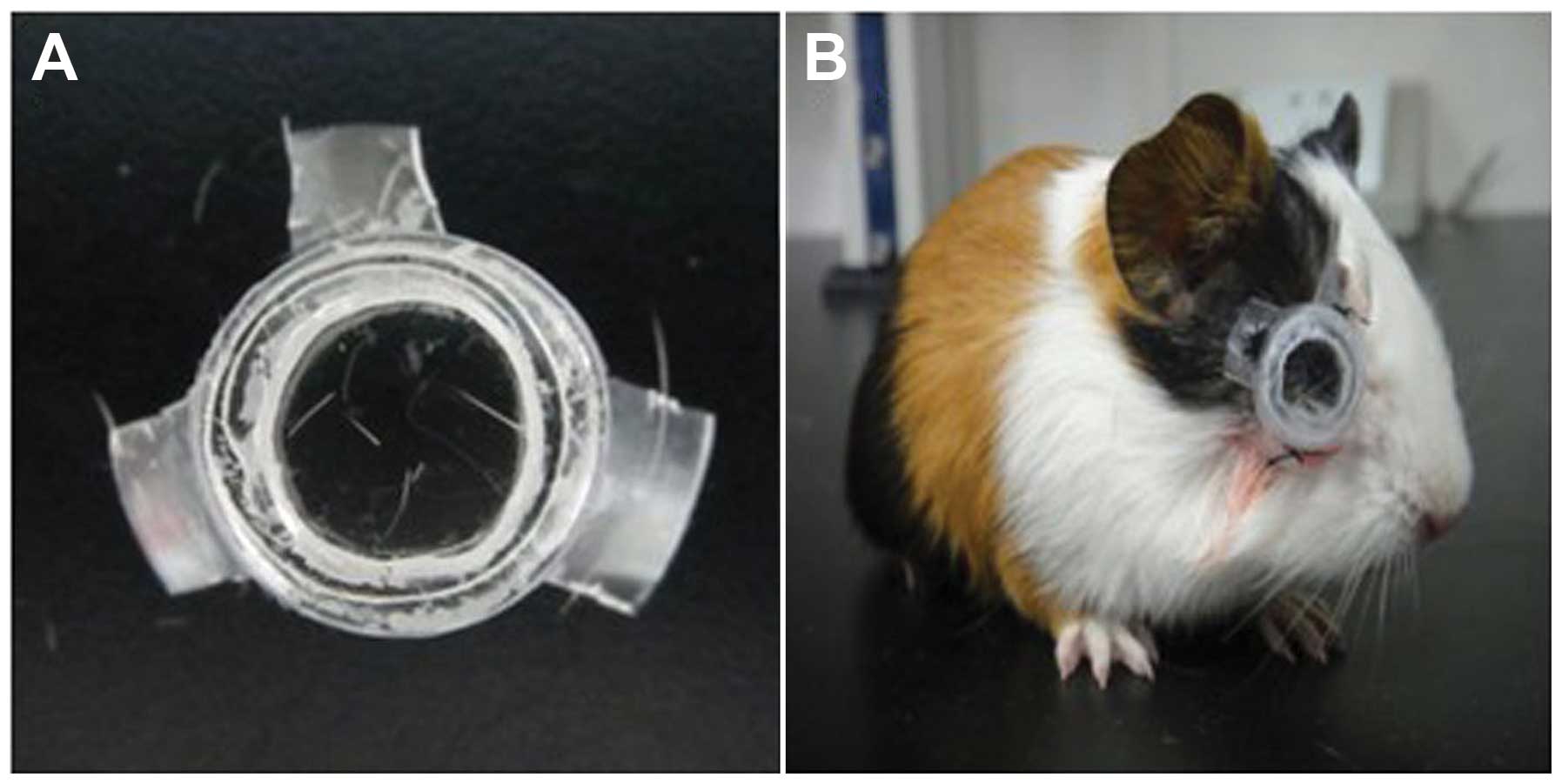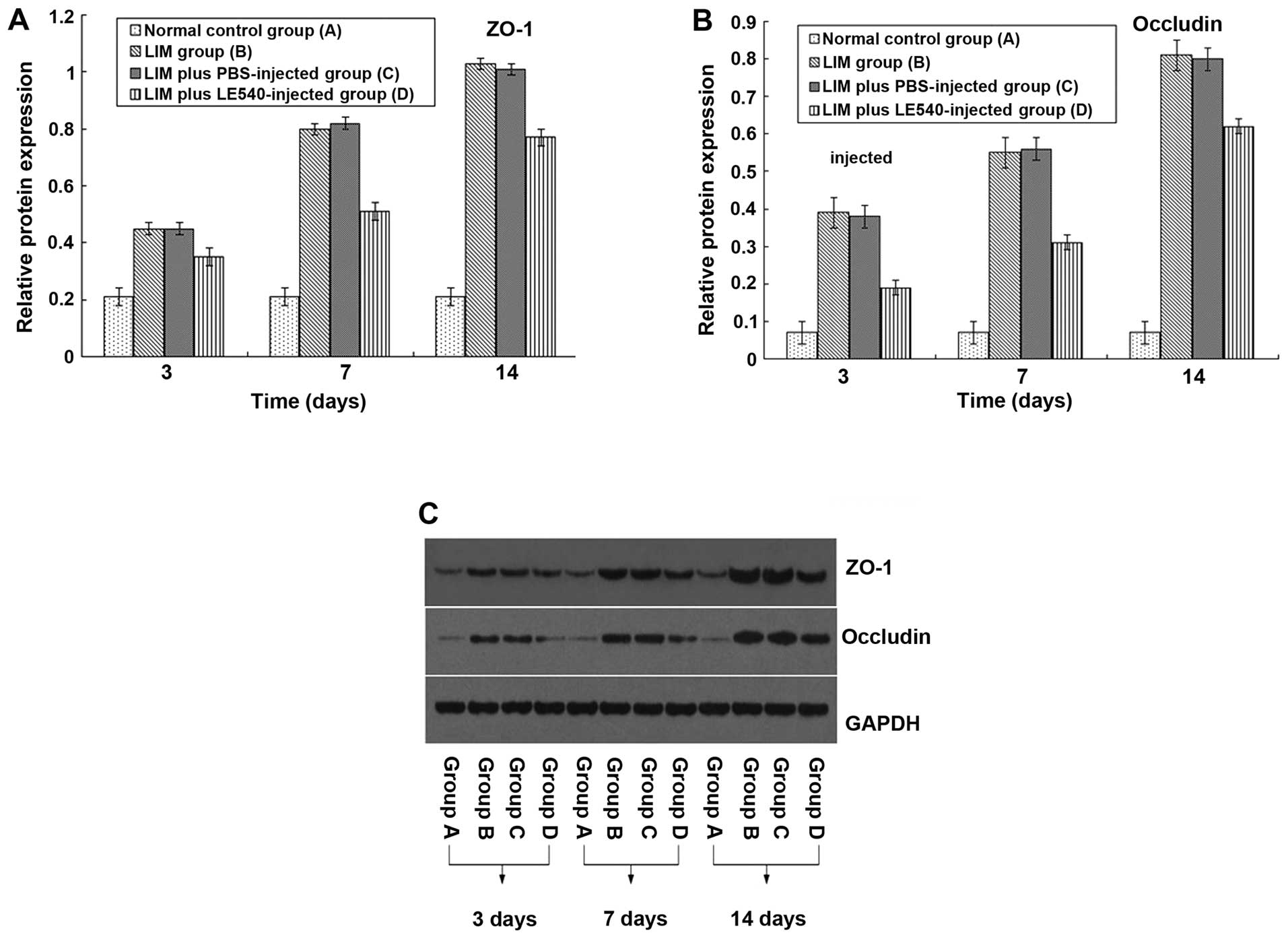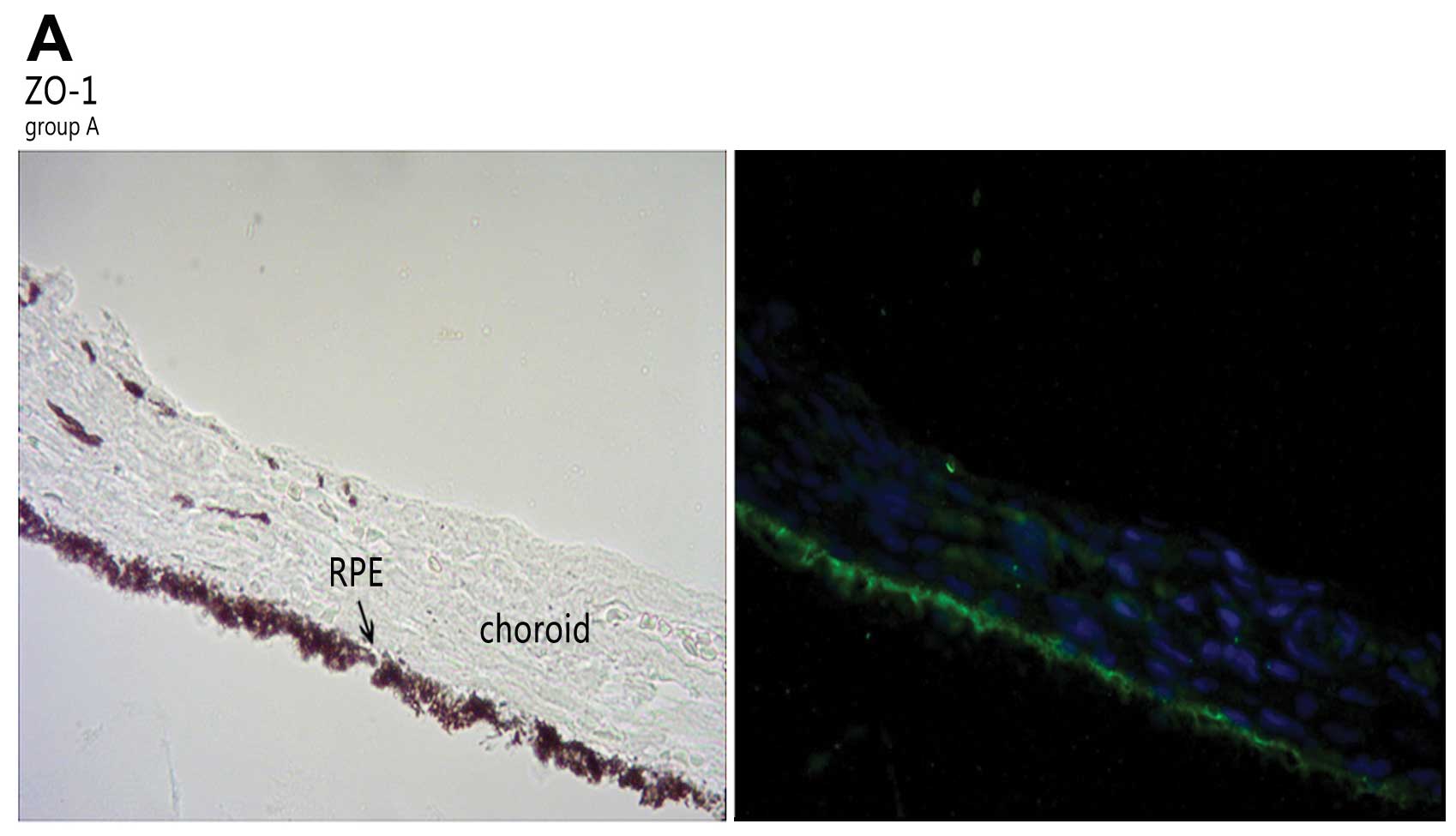|
1
|
Curtin BJ: The Myopias: Basic Science and
Clinical Management. Philadelphia: Harper and Row; pp. 4951985
|
|
2
|
Wiesel TN and Raviola E: Myopia and eye
enlargement after neonatal lid fusion in monkeys. Nature.
266:66–68. 1977. View
Article : Google Scholar : PubMed/NCBI
|
|
3
|
Sherman SM, Norton TT and Casagrande VA:
Myopia in the lid-sutured tree shrew (Tupaia glis). Brain
Res. 124:154–157. 1977. View Article : Google Scholar : PubMed/NCBI
|
|
4
|
Troilo D and Judge SJ: Ocular development
and visual deprivation myopia in the common marmoset (Callithrix
jacchus). Vision Res. 33:1311–1324. 1993. View Article : Google Scholar : PubMed/NCBI
|
|
5
|
Howlett MH and McFadden SA:
Form-deprivation myopia in the guinea pig (Cavia porcellus).
Vision Res. 46:267–283. 2006. View Article : Google Scholar : PubMed/NCBI
|
|
6
|
McBrien NA and Gentle A: Role of the
sclera in the development and pathological complications of myopia.
Prog Retin Eye Res. 22:307–338. 2007. View Article : Google Scholar : PubMed/NCBI
|
|
7
|
Fang F, Pan M, Yan T, Tao Y, Wu H, Liu X,
Qu J and Zhou X: The role of cGMP in ocular growth and the
development of form-deprivation myopia in guinea pigs. Invest
Ophthalmol Vis Sci. 54:7887–7902. 2013. View Article : Google Scholar : PubMed/NCBI
|
|
8
|
Fujikado T, Kawasaki Y, Suzuki A, Ohmi G
and Tano Y: Retinal function with lens-induced myopia compared with
form-deprivation myopia in chicks. Graefes Arch Clin Exp
Ophthalmol. 235:320–324. 1997. View Article : Google Scholar : PubMed/NCBI
|
|
9
|
Xi X, Chu R, Zhou X, Lu Y and Liu X:
Retinal dopamine transporter in experimental myopia. Chin Med J
(Engl). 115:1027–1030. 2002.PubMed/NCBI
|
|
10
|
Rizzolo LJ, Chen X, Weitzman M, Sun R and
Zhang H: Analysis of the RPE transcriptome reveals dynamic changes
during the development of the outer blood-retinal barrier. Mol Vis.
13:1259–1273. 2007.PubMed/NCBI
|
|
11
|
Strauss O: The retinal pigment epithelium
in visual function. Physiol Rev. 85:845–881. 2005. View Article : Google Scholar : PubMed/NCBI
|
|
12
|
Durston AJ, Timmermans JP, Hage WJ,
Hendriks HF, de Vries NJ, Heideveld M and Nieuwkoop PD: Retinoic
acid causes an anteroposterior transformation in the developing
central nervous system. Nature. 340:140–144. 1989. View Article : Google Scholar : PubMed/NCBI
|
|
13
|
Osanai M and Petkovich M: Expression of
the retinoic acid-metabolizing enzyme CYP26A1 limits programmed
cell death. Mol Pharmacol. 67:1808–1817. 2005. View Article : Google Scholar : PubMed/NCBI
|
|
14
|
Bitzer M, Feldkatmper M and Schaeffel F:
Visually induced changes in components of the retinoic acid system
in fundal layers of the chick. Exp Eye Res. 70:97–106. 2000.
View Article : Google Scholar : PubMed/NCBI
|
|
15
|
McFadden SA, Howlett MH and Mertz JR:
Retinoic acid signals the direction of ocular elongation in the
guinea pig eye. Vision Res. 44:643–653. 2004. View Article : Google Scholar : PubMed/NCBI
|
|
16
|
Mertz JR and Wallman J: Choroidal retinoic
acid synthesis: a possible mediator between refractive error and
compensatory eye growth. Exp Eye Res. 70:519–527. 2000. View Article : Google Scholar : PubMed/NCBI
|
|
17
|
Troilo D, Nickla DL, Mertz JR and Summers
Rada JA: Change in the synthesis rates of ocular retinoic acid and
scleral glycosaminoglycan during experimentally altered eye growth
in marmosets. Invest Ophthalmol Vis Sci. 47:1768–1777. 2006.
View Article : Google Scholar : PubMed/NCBI
|
|
18
|
Yan DS, Zhou XT, Chen XY, Lü F, Wang J, Hu
DN and Qu J: Expression of retinoid acid receptors in human scleral
fibroblasts, regulation of growth of fibroblasts by retinoic acid.
Zhonghua Yan Ke Za Zhi. 43:750–753. 2007.(In Chinese).
|
|
19
|
Itoh M, Furuse M, Morita K, Kubota K,
Saitou M and Tsukita S: Direct binding of three tight
junction-associated MAGUKs, ZO-1, ZO-2, and ZO-3, with the COOH
termini of claudins. J Cell Biol. 147:1351–1363. 1999. View Article : Google Scholar : PubMed/NCBI
|
|
20
|
Ebnet K, Schulz CU, Meyer Zu, Brickwedde
MK, Pendl GG and Vestweber D: Junctional adhesion molecule
interacts with the PDZ domain-containing proteins AF-6 and ZO-1. J
Biol Chem. 275:27979–27988. 2000.PubMed/NCBI
|
|
21
|
Schmidt A, Utepbergenov DI, Krause G and
Blasig IE: Use of surface plasmon resonance for real-time analysis
of the interaction of ZO-1 and occludin. Biochem Biophys Res
Commun. 288:1194–1199. 2001. View Article : Google Scholar : PubMed/NCBI
|
|
22
|
Furuse M, Hirase T, Itoh M, Nagafuchi A,
Yonemura S and Tsukita S and Tsukita S: Occludin: a novel integral
membrane protein localizing at tight junctions. J Cell Biol.
123:1777–1788. 1993. View Article : Google Scholar
|
|
23
|
Rong J and Liu S: Effect of all-trans
retinoic acid on the barrier function in human retinal pigment
epithelial cells. Biochem Biophys Res Commun. 407:605–609. 2011.
View Article : Google Scholar : PubMed/NCBI
|
|
24
|
Seko Y, Shimizu M and Tokoro T: Retinoic
acid increases in the retina of the chick with form deprivation
myopia. Opthalmic Res. 306:361–367. 1998. View Article : Google Scholar : PubMed/NCBI
|
|
25
|
McFadden SA, Howlett MH, Mertz JR and
Wallman J: Acute effects of dietary retinoic acid on ocular
components in the growing chick. Exp Eye Res. 83:949–961. 2006.
View Article : Google Scholar : PubMed/NCBI
|
|
26
|
Satoh T, Higuchi Y, Kawakami S, Hashida M,
Kagechika H, Shudo K and Yokoyama M: Encapsulation of the synthetic
retinoids Am80 and LE540 into polymeric micelles and the retinoids’
release control. J Control Release. 136:187–195. 2009.PubMed/NCBI
|
|
27
|
Miyoshi J and Takai Y: Molecular
perspective on tight-junction assembly and epithelial polarity. Adv
Drug Deliv Rev. 57:815–855. 2005. View Article : Google Scholar : PubMed/NCBI
|
|
28
|
Furuse M, Hata M, Furuse K, Yoshida Y,
Haratake A, Sugitani Y, Noda T, Kubo A and Tsukita S: Claudin-based
tight junctions are crucial for the mammalian epidermal barrier: a
lesson from claudin-1-deficient mice. J Cell Biol. 156:1099–1111.
2002. View Article : Google Scholar : PubMed/NCBI
|
|
29
|
Osanai M, Nishikiori N, Murata M, Chiba H,
Kojima T and Sawada N: Cellular retinoic acid bioavailability
determines epithelial integrity: role of retinoic acid receptor
alpha agonists in colitis. Mol Pharmacol. 71:250–258. 2007.
View Article : Google Scholar : PubMed/NCBI
|
|
30
|
Kubota H, Chiba H, Takakuwa Y, Osanai M,
Tobioka H, Kohama G, Mori M and Sawada N: Retinoid X receptor alpha
and retinoic acid receptor gamma mediate expression of genes
encoding tight-junction proteins and barrier function in F9 cells
during visceral endodermal differentiation. Exp Cell Res.
263:163–172. 2001. View Article : Google Scholar
|
|
31
|
de Thé H: Altered retinoic acid receptors.
FASEB J. 10:955–960. 1996.
|
|
32
|
Seko Y, Shimokawa H and Tokoro T: In vivo
and in vitro association of retinoic acid with form-deprivation
myopia in the chick. Exp Eye Res. 63:443–52. 1996. View Article : Google Scholar : PubMed/NCBI
|

















